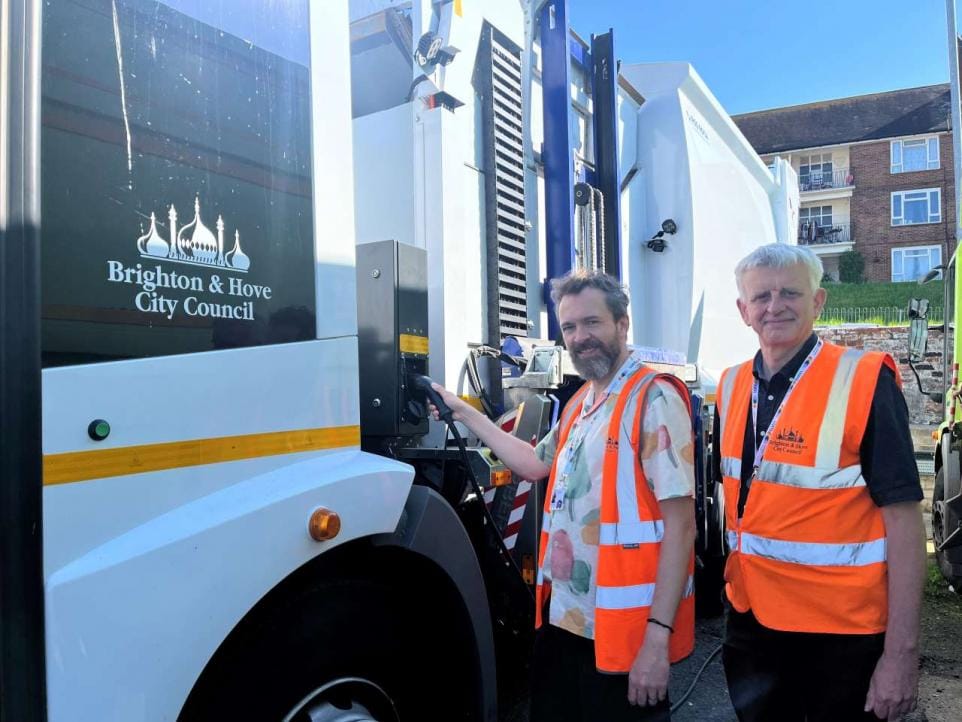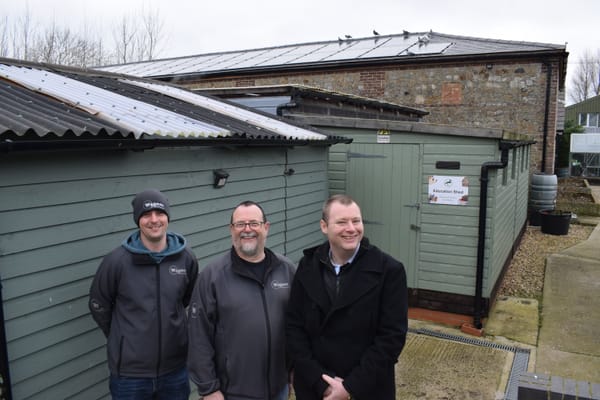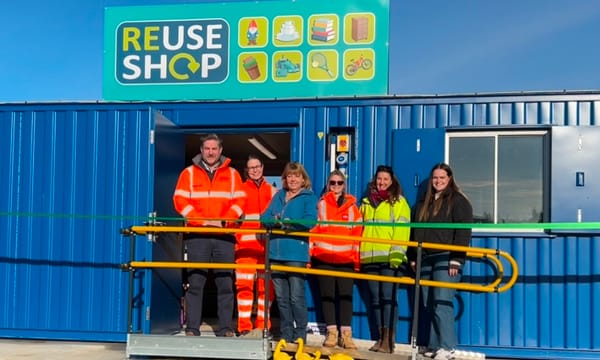Zero-emissions refuse and recycling fleet to save money and reduce pollution

Four new all-electric heavy goods vehicles (HGVs) have been added to Brighton and Hove's refuse and recycling service.
Brighton & Hove City Council is also installing electric vehicle charging facilities at the Hollingdean depot. The site’s new infrastructure is a first for an HGV fleet in the southeast.
A top-loading truck for glass recycling collections will be taking to the streets along with three refuse collection vehicles that can be used for either refuse or recycling rounds. They join an electric side-loading lorry for communal bins, which came into service last month.
Reducing emissions
The local authority has also taken delivery of two more electric communal refuse vehicles to replace trucks that have reached the end of their lives. The existing communal bin vehicles are some of the oldest in the fleet, meaning they are among the least reliable and produce some of the worst emissions. These vehicles will enter service in the next month once their registration is complete.
Two more electric lorries are also on their way and will be used for refuse collections.
Saving money and the planet
One electric truck helps to save around £22,000 a year in fuel, the council said. Vehicle maintenance costs and downtime are expected to decrease by up to 75% as the new HGVs are connected via SIM to the manufacturer, Terberg/Ros Roca, which can run diagnostics and repair any faults remotely.
Electric vehicles produce no emissions, with a single side-loading electric RCV expected to save around 2.6 tonnes of carbon emissions per year – equivalent to nearly seven return flights from Gatwick to Barcelona.
Improving service delivery
Councillor Tim Rowkins, Cabinet Member for Net Zero and Environmental Services, said: “These new electric vehicles are helping to improve service delivery for residents across Brighton & Hove and will contribute to cleaner air as they travel around the city.
“The new state-of-the-art charging facilities are another game-changer, setting the service up for a positive future, saving money on fuel and making an important contribution to reducing emissions – approximately 640,000 tonnes a year – from the council’s fleet.”
Better air quality and cleaner transport
One council refuse truck covers around 220 kilometres in a week, which means the electric vehicles will make a considerable impact on reducing emissions from their journeys around the city.
Councillor Trevor Muten, Cabinet Member for Transport, Parking and Public Realm, said: “The new infrastructure and electric vehicles are an important part of our commitment to improving air quality and improving the health and wellbeing of residents.
“It’s part of our strategic approach for cleaner transport, for example plans for hundreds more EV charging points for residents and visitors and cheaper charging for EV vehicles. It also complements the recent successful bid with Brighton & Hove Buses for zero emissions buses.”
There are now 72 electric vehicles in operation across Brighton and Hove City Council, with another two coming in September.



